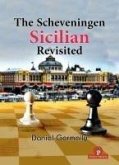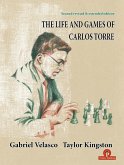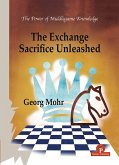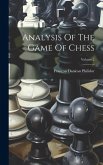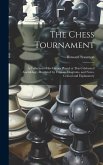A relatively blind spot of chess history relates to the World Junior Chess Championships. Conceived 1951 in Birmingham, the competition between players, who are not yet 20 years old, gradually established itself as an important part of of the World Chess Federation (FIDE) calendar. The first world class player to win the tournament was Boris Spassky in 1955. In the same year he already qualified at the Interzonal Tournament in Gothenburg for the Candidates Tournament in 1956. He went on to become world champion in 1969, but famously lost his title to Bobby Fischer in 1972 in the match of the century in Reykjavík. In this book, the Belgian chess historian Henri Serruys traces back how Spassky became the first Soviet World Junior Chess Champion in Antwerp 1955.
Hinweis: Dieser Artikel kann nur an eine deutsche Lieferadresse ausgeliefert werden.
Hinweis: Dieser Artikel kann nur an eine deutsche Lieferadresse ausgeliefert werden.



